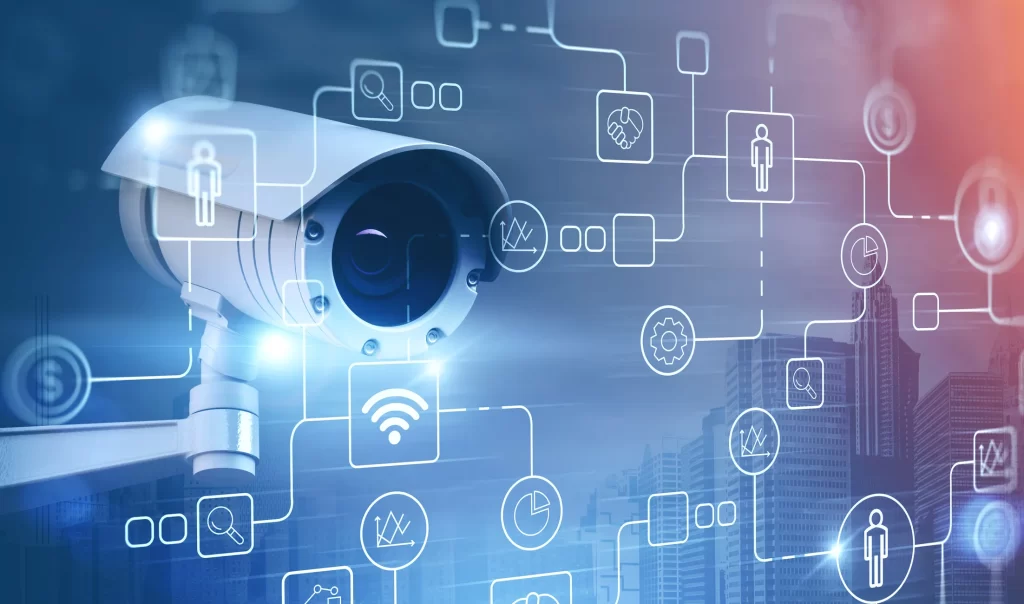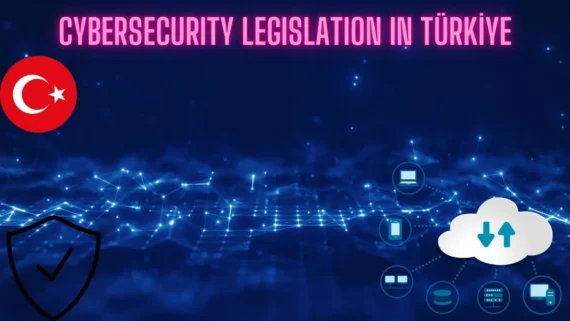Surveillance in Turkey is governed by laws and regulations that prioritize national security while safeguarding individual privacy rights. Lawyers in Turkey play a vital role in gathering evidence to support their clients’ cases. They use legally obtained evidence from various sources, including documents, records, and expert testimony. Electronic evidence, such as emails and social media, is increasingly relevant in modern cases, subject to data protection laws and ethical considerations. Bicak offers cutting-edge Surveillance and Evidence Gathering services, employing private investigators and digital forensic experts. The firm leverages advanced technologies to uncover the truth in diverse legal matters, such as insurance fraud, divorce disputes, and intellectual property infringement. Our tailored solutions prioritize confidentiality and adhere to legal and ethical standards. With a focus on integrity and customized strategies, the firm stands committed to achieving justice for every client.
Surveillance Law of Turkey in a Digital Age
Surveillance is a term that has gained significant prominence in our modern world, including Turkey, particularly with the rapid advancement of technology and the widespread use of digital devices. In its essence, surveillance refers to the systematic monitoring of individuals, groups, or locations to gather information and maintain security. The practice of surveillance serves various purposes, ranging from crime prevention and investigation to ensuring public safety and national security.
Primary objectives
The primary objectives of surveillance can be broadly categorized as follows:
- Public Safety and Security: Surveillance plays a vital role in safeguarding public spaces, such as streets, airports, public transport hubs, and government buildings. CCTV cameras and other monitoring systems are employed to deter criminal activities, and they can also serve as valuable evidence in identifying and apprehending wrongdoers.
- Crime Prevention and Investigation: Law enforcement agencies often utilize surveillance techniques to gather evidence and intelligence on criminal activities. This includes both physical surveillance, where officers observe individuals or locations discreetly, and digital surveillance, where electronic communication and data are monitored to detect potential threats.
- National Security and Counterterrorism: Governments employ surveillance measures to protect their nations from external threats, including terrorism and espionage. These measures can involve monitoring communications, tracking suspicious activities, and conducting intelligence operations.
- Workplace and Organizational Monitoring: In a corporate context, surveillance is sometimes used to ensure employee productivity, maintain security within the workplace, and prevent unauthorized access to sensitive information.
- Traffic and Transportation Management: Surveillance systems are often integrated into traffic management to monitor traffic flow, detect accidents, and implement congestion-reducing measures.
Protection of individual rights and liberties
While surveillance serves essential purposes in maintaining safety and security, concerns over privacy and potential misuse have also arisen. Balancing the need for surveillance with the protection of individual rights and liberties remains a challenging task.
With the advent of the digital age, digital surveillance has become prevalent. Data collection and monitoring of online activities have raised questions about the extent of data privacy and the potential for misuse by both governments and private entities. Striking a balance between the advantages of surveillance for societal well-being and the need to protect individual privacy rights remains an ongoing discussion.
Surveillance is a multifaceted concept that serves vital functions in today’s complex world. When used responsibly and ethically, surveillance can contribute significantly to public safety, crime prevention, and national security. However, it is crucial to have clear regulations and guidelines in place to ensure that surveillance practices respect individual privacy and civil liberties, thereby fostering a society that embraces both security and personal freedom.
Types of Surveillance
Surveillance techniques have evolved significantly over the years, propelled by advancements in technology and the growing need for security and information gathering. Various types of surveillance methods are employed to serve different purposes, ranging from ensuring public safety to protecting sensitive data. Below, we delve into some of the primary types of surveillance:
- Physical Surveillance: Physical surveillance involves the direct, real-time observation of individuals, locations, or activities by trained personnel. This type of surveillance often requires human agents or investigators to discreetly monitor subjects on-site or in public spaces. Physical surveillance is commonly employed in law enforcement, private investigations, and intelligence operations.
- Analog Surveillance: Analog surveillance systems use traditional video recording equipment, such as closed-circuit television (CCTV) cameras, to capture and store footage on magnetic tapes. Though less prevalent in modern times, analog surveillance has been widely used in the past for both security and organizational purposes.
- Digital Surveillance: Digital surveillance has largely replaced analog systems due to its superior efficiency, flexibility, and accessibility. Digital surveillance utilizes IP-based cameras and video management systems to capture, store, and transmit video and audio data in a digital format. It enables real-time monitoring, remote access, and advanced analytics for more effective security management.
- Biometric Surveillance: Biometric surveillance involves the use of unique physical or behavioral characteristics, such as fingerprints, facial recognition, voice patterns, or iris scans, to identify and track individuals. Biometric surveillance systems are often used in access control, law enforcement, and border security.
- Electronic Surveillance: Electronic surveillance focuses on monitoring electronic communications, such as emails, phone calls, text messages, and internet activity. Governments and law enforcement agencies use electronic surveillance as a tool for counterterrorism, crime prevention, and intelligence gathering.
- Vehicle Surveillance: Vehicle surveillance employs tracking devices or GPS technology to monitor the movement of vehicles. This type of surveillance is commonly used for fleet management, logistics, and law enforcement operations.
- Cyber Surveillance: Cyber surveillance involves monitoring online activities and digital communications. It includes tracking website visits, social media interactions, and online purchases. Cyber surveillance is utilized by marketing firms, cybersecurity professionals, and, at times, government agencies for intelligence purposes.
- Social Media Surveillance: Social media surveillance specifically targets monitoring and analyzing content shared on social media platforms. Organizations and law enforcement agencies may use this type of surveillance to gather intelligence, track trends, or identify potential threats.
It is essential to recognize that while surveillance can serve beneficial purposes, its implementation should always be governed by legal and ethical considerations. Balancing the need for security with the protection of individual privacy rights is crucial in fostering a just and secure society.
As technology continues to advance, surveillance methods will likely become more sophisticated. Striking the right balance between surveillance capabilities and privacy protections will remain a significant challenge for policymakers, organizations, and individuals alike.
Surveillance Methods
Surveillance methods have evolved dramatically over time, driven by advancements in technology and the increasing demand for security and information gathering. These methods play a crucial role in various fields, including law enforcement, intelligence, corporate security, and public safety. Below, we delve into some of the key surveillance methods employed in modern times:
- Closed-Circuit Television (CCTV): CCTV is one of the most well-known and widely used surveillance methods. It involves installing video cameras in specific locations to capture real-time footage of activities and events. The recorded video can be monitored live and stored for later review, aiding in investigations and deterring potential wrongdoers. Modern CCTV systems often use digital recording and high-resolution cameras, providing enhanced clarity and accessibility.
- Biometric Identification: Biometric surveillance relies on unique physical or behavioral traits to identify individuals accurately. Biometric data, such as fingerprints, facial features, iris patterns, voiceprints, and gait analysis, is collected and used for identification and access control purposes. Biometric systems are commonly employed in border control, secure facilities, and authentication processes.
- GPS Tracking: Global Positioning System (GPS) tracking involves using satellites to monitor the location and movement of objects or individuals equipped with GPS-enabled devices. This method is widely used in fleet management, logistics, law enforcement, and personal tracking applications.
- Digital Communication Monitoring: Electronic surveillance, also known as wiretapping or electronic eavesdropping, involves the interception and monitoring of electronic communications. This method targets phone calls, emails, text messages, and internet-based communications to gather intelligence or investigate criminal activities. Strict legal regulations often govern electronic surveillance to protect individuals’ privacy rights.
- Data Analysis and Data Mining: In the digital age, vast amounts of data are generated and collected every day. Surveillance methods often employ data analysis and data mining techniques to extract valuable insights from this information. This can be used to detect patterns, predict behaviors, and identify potential risks or threats.
- Social Media Monitoring: Social media surveillance focuses on monitoring content shared on various social media platforms. Organizations and law enforcement agencies use this method to gather intelligence, track trends, and identify individuals or groups involved in illegal activities.
- Aerial Surveillance: Aerial surveillance involves the use of aircraft, drones, or satellites to capture visual information from above. This method is particularly useful for large-scale monitoring, border control, and environmental assessments.
- Undercover Operations: Undercover surveillance relies on human agents infiltrating specific groups or organizations to gather intelligence discreetly. Undercover operatives may assume false identities to gain trust and access sensitive information.
- Thermal Imaging and Night Vision: Thermal imaging and night vision technologies enable surveillance in low-light or no-light conditions. These methods are beneficial for law enforcement, military operations, and security applications.
It is important to recognize that the use of surveillance methods must adhere to legal and ethical guidelines to protect individual privacy and prevent abuse. Striking a balance between security needs and safeguarding civil liberties remains an ongoing challenge as technology continues to advance. Responsible and transparent use of surveillance methods is essential in building trust and maintaining a just and secure society.
Surveillance Rules in Turkey
Surveillance rules in Turkey aim to strike a balance between ensuring national security and protecting individuals’ privacy rights. The legal framework for surveillance is established through various laws, regulations, and codes. Some key points related to surveillance rules in Turkey are as follows:
- The Constitution of Turkey: The Turkish Constitution recognizes and guarantees the right to privacy in Article 20. This article stipulates that individuals’ private life, family life, and correspondence are inviolable. Any interference with privacy is subject to strict legal criteria and requires judicial authorization, except in specific circumstances defined by law.
- Law No. 2937 on the State Intelligence Services and the National Intelligence Organization: This law governs the establishment, organization, and activities of the National Intelligence Organization (MİT). The MİT is responsible for gathering intelligence to protect national security and is authorized to conduct surveillance activities. However, the law emphasizes that these activities must comply with the principles of necessity and proportionality, and they are subject to judicial oversight.
- Law No. 5651 on the Regulation of Internet Broadcasts and Combating Crimes Committed through Internet Broadcasting: This law addresses issues related to cyber surveillance and internet regulation. It grants authorities the power to restrict access to certain websites or content for reasons such as national security, public order, or protecting public morals. However, this power has raised concerns about potential violations of freedom of expression and information.
- The Turkish Criminal Code (TCC) and Criminal Procedure Code (CPC): The TCC and CPC provide guidelines for conducting criminal investigations, including surveillance methods. Any surveillance conducted during criminal investigations must be done in accordance with legal procedures and subject to judicial authorization.
- Surveillance and Intelligence Activities Review Commission: In 2017, Turkey established the Surveillance and Intelligence Activities Review Commission to oversee surveillance activities conducted by public institutions, including law enforcement and intelligence agencies. This commission reviews and assesses the legality and compliance of surveillance actions.
- Data Protection Laws: In 2016, Turkey enacted the Personal Data Protection Law (KVKK), which regulates the collection, processing, and storage of personal data. Surveillance activities involving the collection of personal data must adhere to the principles and safeguards outlined in the KVKK.
Surveillance and evidence gathering power granted to lawyers
Lawyers in Turkey are granted certain powers to gather evidence and conduct surveillance within the boundaries of the law and ethical considerations. Adherence to the legal framework, respect for attorney-client privilege, and ethical practices are essential for upholding the integrity of the legal system and ensuring a fair and just judicial process.
Lawyers in Turkey play a crucial role in the administration of justice, representing and advocating for their clients’ interests in various legal proceedings. As part of their responsibilities, lawyers may engage in surveillance activities and evidence gathering to build strong cases.
The legal framework that governs the surveillance and evidence gathering power of lawyers in Turkey includes various laws and regulations. Key components of this framework include the Turkish Criminal Code, Criminal Procedure Code, and the Law on Lawyers. These laws outline the scope and limitations of lawyers’ authority when conducting surveillance and evidence collection.
Lawyers in Turkey are not typically authorized to conduct independent surveillance or investigations like law enforcement or intelligence agencies. Instead, they rely on publicly available information, documents, and official records to build their cases. Lawyers may engage private investigators or experts to assist them in gathering relevant evidence.
One of the fundamental principles in the legal profession is attorney-client privilege. This principle protects communications between a lawyer and their client from being disclosed without the client’s consent. It ensures that clients can openly share information with their lawyers without fear of it being used against them.
Lawyers in Turkey are bound by a strict code of ethics, which includes rules on maintaining confidentiality, avoiding conflicts of interest, and respecting the rights of all parties involved in legal proceedings. While they have a duty to advocate for their clients, they must do so within the confines of the law and without engaging in unethical or illegal practices.
As technology plays an increasingly significant role in modern legal cases, lawyers may encounter electronic evidence, such as emails, text messages, or social media posts. Lawyers must adhere to data protection and privacy laws when collecting and presenting electronic evidence in court.
Surveillance and evidence gathering by lawyers are subject to judicial oversight. Courts may review the admissibility of evidence obtained by lawyers to ensure that it was lawfully obtained and does not violate any rights of the parties involved.
This report includes case studies that illustrate how lawyers in Turkey have utilized surveillance and evidence gathering techniques to support their clients’ cases. These case studies highlight the importance of adhering to legal and ethical standards in the legal profession.
Pursuit of truth
In the dynamic world of law, the pursuit of truth and justice lies at the heart of every case. At Bicak, we are committed to empowering justice by employing cutting-edge Surveillance and Evidence Gathering services to strengthen our clients’ cases.
Surveillance is a powerful tool that allows us to unveil the truth, supporting clients in diverse legal matters. Whether it’s uncovering insurance fraud, revealing hidden assets in divorce cases, or demonstrating infringement of intellectual property rights, surveillance can be the key to unlocking pivotal evidence. Our team of experienced private investigators and digital forensic experts meticulously gather information to bolster our clients’ claims and build a compelling case.
Enhanced Evidence Gathering: Strengthening Legal Arguments
In the digital age, evidence gathering has taken on a whole new dimension. Our law firm harnesses advanced technologies and expertise to collect and analyze electronic evidence, ensuring no stone is left unturned. From tracking digital footprints, analyzing online communications, to conducting data forensics, we leave no room for ambiguity. Our enhanced evidence gathering services empower our clients with robust legal arguments, presenting airtight cases that stand strong in the courtroom.
Protecting Your Interests: Upholding Ethical Practices
At Bicak, we firmly believe in upholding ethical practices in every aspect of our work. Our surveillance and evidence gathering services strictly adhere to the law and respect individual rights to privacy. The attorney-client privilege is at the core of our relationship, and we prioritize the confidentiality of all communications. Our clients can trust us to protect their interests while ensuring that all evidence gathered is admissible and legally obtained.
Tailored Solutions for Every Case
Each legal case in Turkey is unique, and so are the challenges they present. Our law firm takes pride in providing tailored solutions to suit the specific needs of each client. Whether you are facing a complex business dispute, a contentious divorce, or intellectual property infringement concerns, our Surveillance and Evidence Gathering services are designed to deliver results.
How It Works
- Consultation: We start with an in-depth consultation to understand your case, objectives, and concerns.
- Strategizing: Our experienced legal team devises a tailored strategy, incorporating surveillance and evidence gathering techniques to support your case.
- Surveillance Operations: Our licensed private investigators discreetly conduct surveillance to collect pertinent information and observe relevant activities.
- Digital Forensics: Our experts employ advanced digital forensic techniques to analyze electronic evidence, ensuring its accuracy and admissibility.
- Documenting and Presenting Evidence: We compile all evidence meticulously and present it in a compelling manner to strengthen your legal arguments.
At Bicak, we believe that every client deserves justice, and we are dedicated to achieving it through meticulous surveillance and evidence gathering. Our services are driven by integrity, ethics, and an unwavering commitment to our clients’ interests. When you entrust your case to us, you empower your pursuit of truth and justice, knowing that you have a dedicated team working tirelessly to uncover the evidence needed to make a profound impact in the courtroom. Contact us to learn how our Surveillance and Evidence Gathering services can strengthen your legal case and bring you closer to the justice you seek.
 English
English Türkçe
Türkçe Français
Français Deutsch
Deutsch





Comments
No comments yet.